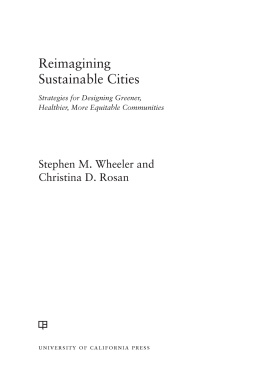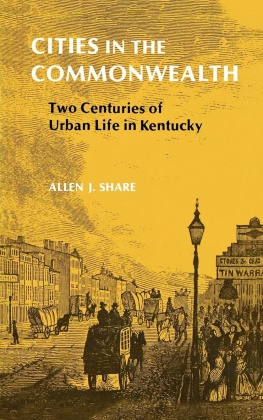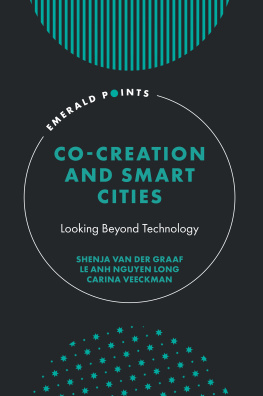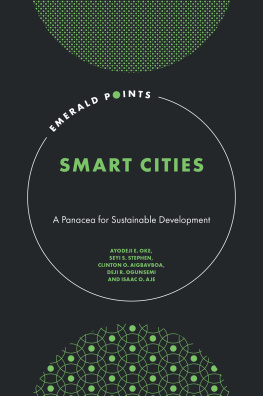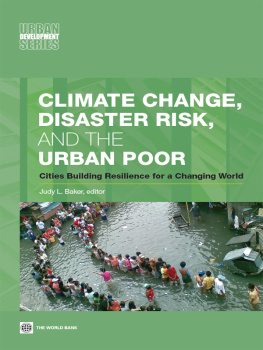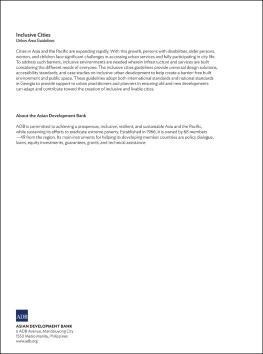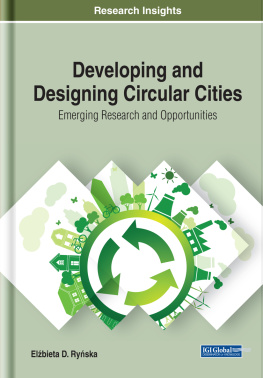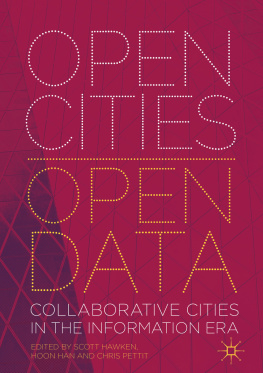Contents
Guide
Pagebreaks of the print version
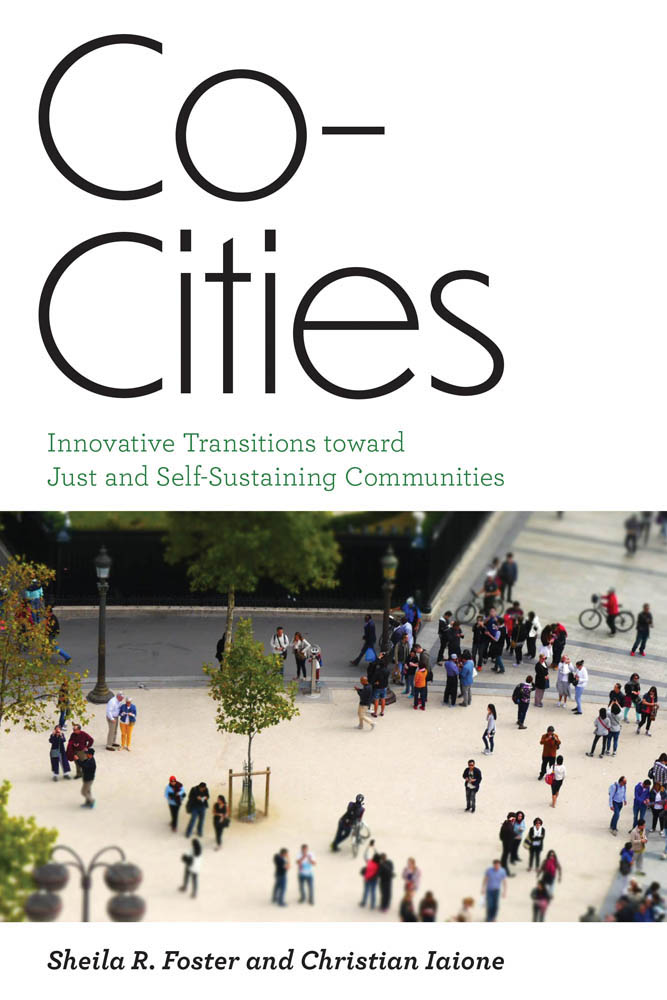
Urban and Industrial Environments
Series editor: Robert Gottlieb, Henry R. Luce Professor of Urban and Environmental Policy, Occidental College
For a complete list of books published in this series, please see the .
CO-CITIES
INNOVATIVE TRANSITIONS TOWARD JUST AND SELF-SUSTAINING COMMUNITIES
SHEILA R. FOSTER AND CHRISTIAN IAIONE
THE MIT PRESSCAMBRIDGE, MASSACHUSETTSLONDON, ENGLAND
2022 Massachusetts Institute of Technology
This work is subject to a Creative Commons CC-BY-ND license.
Subject to such license, all rights are reserved.

The open access edition of this book was made possible by generous funding from the MIT Libraries.
The MIT Press would like to thank the anonymous peer reviewers who provided comments on drafts of this book. The generous work of academic experts is essential for establishing the authority and quality of our publications. We acknowledge with gratitude the contributions of these otherwise uncredited readers.
Library of Congress Cataloging-in-Publication Data
Names: Foster, Sheila R., 1963 author. | Iaione, Christian, author.
Title: Co-cities : innovative transitions toward just and self-sustaining communities / Sheila R. Foster and Christian Iaione.
Description: Cambridge, Massachusetts : The MIT Press, [2022] | Series: Urban and industrial environments | Includes bibliographical references and index.
Identifiers: LCCN 2021062248 (print) | LCCN 2021062249 (ebook) | ISBN 9780262539982 (paperback) | ISBN 9780262361910 (epub) | ISBN 9780262369930 (pdf)
Subjects: LCSH: City planning. | Civic improvement. | Commons. | Municipal government. | Infrastructure (Economics) | Public-private sector cooperation.
Classification: LCC HT166 .F675 2022 (print) | LCC HT166 (ebook) | DDC 307.1/216dc23/eng/20220519
LC record available at https://lccn.loc.gov/2021062248
LC ebook record available at https://lccn.loc.gov/2021062249
d_r0
Sheila R. Foster:
To Rosalind and Tyler, the wind beneath my wings
Christian Iaione:
To my father, Arturo, my mother, Ada, my grandmother, Bella who all inspired my engagement for self-empowerment and justice
CONTENTS
ACKNOWLEDGMENTS
This book is the result of a wide collaborative effort. Although based in our individual and joint scholarship, this book benefited from our close collaboration with a number of academics, students, networks, and dedicated graduate and postgraduate fellows. The Co-Cities project started initially through collaboration with Marco Cammelli, Emeritus Professor of Administrative Law at the University of Bologna, former President of the Fondazione del Monte di Bologna e Ravenna, the Transformative Actions Interdisciplinary Laboratory (TrailLab) of the Catholic University of Milan, in particular Professor Ivana Pais and Michela Bolis, and the International Association for the Study of the Commons (IASC). It then drew on years of dialogue, exchange and learning with scholars, practitioners, and undergraduate and graduate students at Luiss University, Sapienza University, Fordham University, and Georgetown University.
We want to thank in particular Bill Treanor, the Dean of Georgetown Law, for providing indispensable research support. Special thanks are also due to Leonardo Morlino, Emeritus Professor of Political Science at Luiss University, for his tireless and patient guidance on the theoretical framework and the methodological approach reflected in the early part of this project and to Claudio Rossano, Raffaele Bifulco, Paola Chirulli, Fulvio Cortese, Giacinto Della Cananea, Annalisa Giusti, Bernardo Mattarella, Giuseppe Piperata, Aldo Sandulli, Maria Alessandra Sandulli, and Paolo Stella Richter, for sharing their scholarly wisdom on public and administrative law.
Thank you to the over two hundred participants at the City as a Commons IASC Conference (Bologna 2015) and in particular the scholars and practitioners who shared their presentations and papers with us and helped us spread the unique body of knowledge on the urban commons generated by the conference that has shaped our thinking. We are specifically thankful for the contributions of the keynote scholars and researchers at the conference, including David Bollier, Tine de Moor, Paola Cannav, Silke Helfrich, and Ezio Manzini. We are thankful to the city of Bologna and in particular to Virginio Merola, Matteo Lepore, Giacomo Capuzzimati, Luca Rizzo Nervo, Giovanni Ginocchini, Michele DAlena, Ilaria Daolio, Roberta Franceschinelli, Anna Rita Iannucci, and Donato Di Memmo for their support in organizing the 2015 conference and the connected action-based research program and policy experimentation initiated in 2011 and developed until 2017 under the umbrella of the Co-Bologna program.
We launched the empirical Co-Cities project on the heels of that conference and the connected action-based research program and policy experimentation, with the help of Michel Bauwens and Vasilis Niaros (P2P Foundation Research Fellow) who contributed to the first phase of our case study surveys. For case studies in Latin America, we relied on the excellent suggestions offered to us by Thamy Pogrebinschi. We also relied upon the invaluable data and analysis collected by her and her research team on LATINNO, innovations for democracy in Latin America.
For case studies on sharing cities worldwide we drew upon some of the examples in the book Shareable Sharing Cities: Activating the Urban Commons. We are thankful to Shareable co-founder Neal Gorenflo for his support and for being a constant source of inspiration throughout the last years. We benefited tremendously from our mutual exchange with Daniela Patti and Levente Polyk, co-founders of Eutropian, who nurtured our interest in sustainable urban regeneration processes. We have also learned a great deal from Eutropians research projects and found particularly useful the case studies contained in the book Funding the Cooperative City. We shared the initial part of this research journey with Gregorio Arena, Daniele Donati, and Fabio Giglioni at Labsus.org.
We are deeply grateful to Nicoletta Levi, Valeria Montanari, Lanfranco De Franco, and Luca Vecchi, leading policymakers in Reggio Emilia; Gianni Ferrero, Fabrizio Barbiero, Walter Cavallaro, Ilda Curti, Alice Zanasi, Tiziana Eliantonio, Laura Socci, Alessandra Quarta, Ugo Mattei, Antonio Vercellone, Rocco Albanese, Simone DAntonio, and Paolo Testa, key players in the Co-City Turin UIA project; Nicola Masella, Fabio Pascap, Alberto Lucarelli, Carmine Piscopo, Giuseppe Micciarelli, Roberta Nicchia, and Maria Francesca De Tullio, key figures in the Naples urban commons policymaking and advocacy who led also the Civic eState URBACT project (which helped us learn from the professional expertise of exemplary urban civil servants and activists such as Magdalena Skiba and Michal Zorena from Gdansk; Natalie van Loon from Amsterdam; Gala Pin, Laia Fornet, Albert Gomez Martin, and Mauro Castro from Barcelona; Emma Tytgadt, Yoko Gesels, and Eleke Langeraert from Gent; Marius Homocianu from Iasi; and Peter Fomela from Presov); Mauro Annunziato and Claudia Meloni, lead scientists at ENEA the Italian National Research Agency on Sustainable Development, who enabled our research on smart communities and energy communities; Luca Talluri, Alessandro Almadori, and Luca Montuori, who supported our research endeavor to reconceive public and social housing as commons; Massimo Alvisi and Gerlando Iorio, who involved us in the Co-Battipaglia project and made us think about the key role urban planning may play in enabling the urban commons; and Paola Verdinelli, Paola Cannav, Dario Minghetti, and Urio Cini, who played a key role in the first river participatory foundation and the first neighborhood cooperative incubated in Rome through the Co-Roma.it platform and project. They all contributed to give us the opportunity to collaborate in a collective effort to put the theory of the urban commons into practice in stimulating testbeds like Bologna, Reggio Emilia, Turin, Naples, and Rome.


